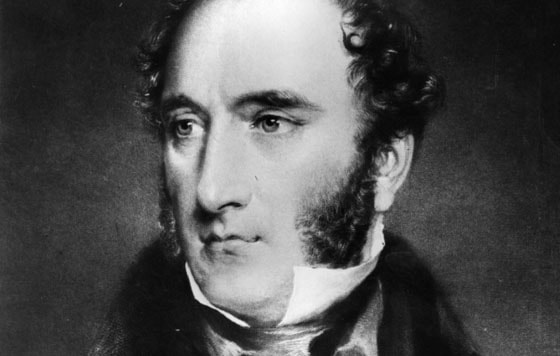|
Few surgeons have embodied the pure pursuit of excellence in anatomy, surgical techniques, medical education, innovation, and patient advocacy as Dr. Robert Liston. He was one of the most prominent surgeons of his era, and his imprint on surgical education continues today.
“Time me, Gentlemen!” are famous words Dr. Robert Liston usually uttered right before a surgical procedure. The life of Robert Liston tells the tale of how a young surgeon in 19th century Victorian England elevated to become the most daring, courageous, technically gifted, and fastest surgeon of his era. Dr. Liston was just 16 years old when he began medical training under the famed anatomist John Barclay. He would be appointed House Surgeon of the Royal Infirmary in Edinburg four years later. Given his age compared to his peers, Dr. Liston always pointed out that experience and case volume, not age, guaranteed success and proof of ability. Many historical surgical texts always point to the bravery and bravado of Dr. Liston, such as his intimidating and argumentative personality, daring ability to take on the most difficult of surgical cases, or the apocryphal lower extremity amputation case with a 300% mortality. Being the showman he was, Dr. Liston never shielded away from challenges or competition and was unapologetic in his disapproval of surgical practices he considered inferior. His nickname, “The Fastest Knife in the West End,” continues in surgery annals today, with one of his above-the-knee amputations only lasting 30 seconds from incision to final suture. Dr. Liston’s U-shaped flap technique revolutionized limb amputation surgeries, and the Liston knife (a long, double-sided blade) became the standard instrument for limb amputations. Dr. Liston also made many contributions to aseptic surgery and performed Europe’s first surgery under anesthesia. The most lasting aspects of the life of Dr. Liston that permeate today were his dedication to surgical excellence, innovation, ethics, and patient advocacy. During an era that predated general anesthesia, blood transfusion, and asepsis, where patients walked into hospitals with the fear of certain death, Dr. Liston understood the justified terror of surgical intervention. He took seriously the agony and pain patients had to bear during a surgical procedure. Thus, his call for surgeons to have a thorough knowledge of anatomy and pathology, make accurate diagnoses, and intervene surgically, when indicated, with swift, precise, and unwavering competence in operative technique. Historical Significance: A complete picture of Dr. Liston is a surgeon who was never complacent, never afraid to step into the unknown, and one who knew that true success came from study and experience. One who was a compassionate provider, always doing his best to attend to the minds and feelings of his patients. These attributes are epitomized in recipients of the Liston Medal for Surgery at University College Hospital, London, England. While such an award is not commonplace in the United States today, these attributes (which embody the true legacy of Dr. Liston) should be sought out by every surgical provider. Eliel Arrey MD MBA Eliel Arrey, MD., MBA., is a health advisor, business advocate, entrepreneur, educator, and surgeon with a passion for Breast Oncology, Oncoplastic and Cosmetic Surgery. History of Surgery series showrunner. He has been an educator for over 15 years and has vast experience teaching undergraduate students, nursing students, medical students, and resident physicians. Dr. Arrey is a physician at Grady Memorial Hospital in Atlanta and a Morehouse School of Medicine physician. He also serves as a faculty member at Kaplan, teaching Neurology and Surgery review courses to medical students worldwide. He is currently a PhD candidate in organizational leadership at Columbia International University. References:
0 Comments
Leave a Reply. |
AuthorEliel Arrey, MD., MBA., is a Surgeon, business advocate, entrepreneur, medical historian, expert author, and educator. ArchivesCategories
All
|

 RSS Feed
RSS Feed